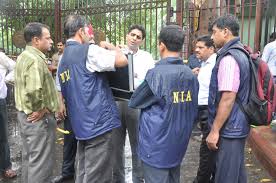
The National Investigation Agency (NIA) on Wednesday raided eight locations in Tamil Nadu’s Coimbatore over a suspected link between an Islamic State (IS) module in Coimbatore and the Sri Lanka Easter attacks, which killed over 250 people.
A two-member NIA team headed by an Inspector General had left for Colombo last month to coordinate with the Sri Lankan authorities in the investigation into the attacks. “We have our own FIR against ISIS modules. The visit is not to assist Sri Lanka with their probe but to see if an exchange of information and evidence gathered by us and them can be mutually beneficial,” a top NIA official had then said.
Sources had said while the NIA team will see if Sri Lankan agencies have any information to help NIA in its investigation, it will also share with them the evidence found in the ISIS Kerala and Coimbatore Module cases. Twenty-one people from Kerala, including women and children, had moved to Afghanistan to join the ISIS. Probe revealed that members of this group, led by one Ashfaq Majeed, had gone to Sri Lanka’s Jaffna before they sneaked into Afghanistan.
In the Coimbatore case, the NIA stumbled upon crucial evidence to show that prime accused of the Sri Lankan bombing case Zahran Hashim had plans of targeting churches in Lanka. The NIA chargesheeted Mohamed Ashiq A, Ismail S, Samsudeen, Mohammed Salauddin S, Jafar Shadik Ali and Shahul Hameed in the Coimbatore case of 2018. Based on the interrogation of these suspects, India had warned Sri Lanka of possible terror attacks during Easter.
Riyas A alias Riyas Aboobacker, a resident of Kerala, was arrested by the NIA. The investigation revealed links with Zahran Hashim and plans to carry out a Lanka style suicide attacks in Kerala.
Top officials said that the visit by the NIA team to Sri Lanka will be beneficial since the ISIS modules are now working across borders. Further, the Kerala coast has been put on high alert after intelligence bureau reports warned that a team of 15 ISIS terrorists could be taking the sea route from Sri Lanka to target Indian coastlines in Kerala or Lakshadweep.
Prime Minister Narendra Modi had visited Sri Lanka on Sunday and pledged solidarity with the people as he made an unscheduled visit to the St Anthony’s church, one of the sites of the horrific Easter Sunday attacks, and paid tributes to the victims.
“I am confident Sri Lanka will rise again. Cowardly acts of terror cannot defeat the spirit of Sri Lanka. India stands in solidarity with the people of Sri Lanka,” said Modi, the first foreign leader to visit Sri Lanka after the Easter attacks on April 21.
Nine suicide bombers, including a woman, carried out a series of devastating blasts that tore through St Anthony’s Church in Colombo, St Sebastian’s Church in the western coastal town of Negombo and another church in the eastern town of Batticaloa, and three high-end hotels frequented by tourists in the country’s deadliest violence since the devastating civil war with the Liberation Tigers of Tamil Eelam (LTTE) ended in 2009.